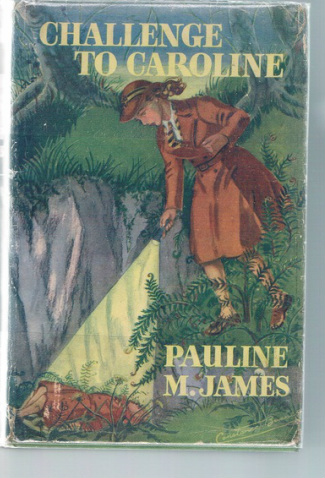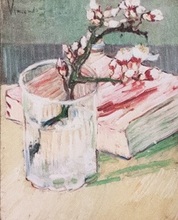
Dear M (I like that. I feel like 007 communicating with HQ),
Before I get on with my descent into the seedy underworld of illicit drugs, which I know you are all just dying to read about, I thought I would answer your question about my Catholic upbringing. I can’t stand it when a question is posed and then never answered. I suppose there is some sort of neurotic disorder associated with this, but I don’t have my wife’s compulsion to search the internet and find out. We can call it ‘Obsessing over Questions left Unanswered Disorder’, so when I blame OQUD for my sudden shift to a tangent that has this blog on its head, you can only blame yourself. I’m simply going back a few posts to answer a question that is still bugging the hell out of me.
It’s probably a bit of a hyperbole to call what I experienced as a ‘strict Catholic upbringing’, (I’m a writer; that’s what we are good at) but Catholicism was certainly a part of my early memories. My mother went to mass every Sunday and made her children do the same. My father must have not needed as much redemption, because he only went to church on Easter and Christmas. Judging by the huge swell of bodies during the Easter and Christmas masses, I would imagine that a good many American Catholics only need God twice a year too. My brother, my older sister and I all went to a Sunday school program called ‘Catechism’, but by the time my younger sister, “the accident”, was born, my mom had become a twice a year Catholic and Catechism was just an unpleasant memory. My father was a strict disciplinarian, but it had little to do with Catholicism. My parents didn’t invite a priest over to cast the demon of rebellion out me, nor have I had the back of my hands beaten with a ruler by a nun. And, believe it or not, I have never been molested by a priest. My experience with the Catholic Church was tolerable compared to most stories you hear.
Besides boring the hell out of me in Catechism, I remember becoming almost comatose with monotony during the mass each week. We went to a very old Church that had a Gothic feel. Thick stained glass windows allowed little daylight to make its way into the long rows of wooden pews. Candles made the pulpit glow and incense filled the air. The monotone chanting; altar boys walking around in dresses swinging incense burners at the end of a rope; a bald priest speaking in Latin; pipe organ music so loud it shakes the pews – it was all designed to instill a sense of awe and respect in the parishioner, but for me it made time stand still. I couldn’t wait for it to end. It seemed like my mom couldn’t wait either. She would grab us just after the priest left the pulpit and we would high-tail it for the door to be the first out of the parking lot. She never stopped to say ‘hi’ or ‘good-day’ to anyone. You would think that she would want more for the dollar she put in the offering plate each week, but I guess she wasn’t there to socialize.
The only fond memory I have of it all was the rare occasion when my mother let me slip out in the middle of a service to use the restroom. I was born with an unusually small bladder, so I almost always had to pee. Mom knew this, but she would usually scold me for not emptying it before we sat down. I wonder if that is why I felt God's presence as I exited the side door of the church and climbed down the cracked cement steps to the dank, dirty public toilet beneath the parsonage across from the sanctuary; I felt as if the Divine had softened my mother's resolve.
I would sit down on the dirty porcelain throne (standing would go too fast) and watch the crickets scramble, while I pondered life and why the people in the building next to me had to listen to a man speaking in a language that no one understood so that they could find God. I never heard the voice of God, no image of the Virgin Mary appeared on the wall, nor did I find the greater meaning of life, but I did feel at peace and a bit of harmony with the critters crawling on the floor all around me. Fear of my mother's wrath at staying on the toilet for the remainder of the mass would drive me back into the mundane, but I would find church a little more tolerable until I had to do it all again in a week.
Now, fast-forward six or more years to a fourteen-year-old boy who has found his place among stoners. Actually, the first group of druggies to embrace me was jocks. We had moved to the country and the closest neighbor with kids our age was also the largest farmer of the area. He had three boys that were all tall, strong, athletic and handsome – the type of boys that I could only dream of being. The oldest was my brother’s age and the biggest drug dealer in the area. The youngest became my best friend. We all had dirt bikes, which we would ride until the sun set every day during the summer (after getting stoned, of course). Life was great, that is until I got into high school and got busted for smoking pot behind the boy’s room window, but that will have to wait for another ‘letter’. I’ve used up more than my share of this blog already.
So I’ll hand it off to you, my dear friend from another world. I am anxiously awaiting learning more about your life. Did your mother ever remarry? Did you ever see your father again? How many siblings do you have? Now you have a few OQUDs to blame. ;)
Your friend,
DB
Dear DB,
That really made me laugh, especially the bit about your father not requiring as much redemption as your mother, and American Catholics only needing God twice a year. I liked the stuff about Catechism classes, and the coma-inducing Latin pageant of frock-wearing priests and altar boys too. I have a profound aversion to men in frocks, in fact. We have them in the Anglican tradition as well. It’s a seemingly irrational aversion, though, because I don’t have the same problem with men in kilts.
Most of the problems with institutional religion – the boredom, the irrelevance - can be traced back to doctrine, in my view. And doctrine often as not comes down to that perpetual human desire to control both other human beings and the Transcendent. You might as well try and put clouds in a box. I am not here, says the empty box. And then the atheist comes and points at the empty box and says, where is your God?
Back in the day when I studied church doctrine for more than a decade, (which I like to think earns me the right to talk about these matters), my bookshelves groaned beneath the weight of the Catechism of the Catholic Church, the Documents of Vatican II and the Code of Canon Law. I do not think it coincidence that these are three of the most boring books in the history of publishing. So boring are they, in fact, they do not even make it onto Goodreads’ list of Most Boring Books Ever. (I’ve just checked.) At the time I did not realize how short life is, otherwise I would have read the works on the Goodreads Boring List instead, a list which includes some unlikely and surprising candidates like Moby Dick and Anna Karenina.
I did see my father again, to answer one of your questions. We didn’t last long in England, Polly, my middle brother and I. (I have two brothers, the older one had long since fled the toxicity of the family home.) When next I saw Roderick, he’d married his new wife. They’d had to wait two years for her to reach the legal age for marriage, and he’d been ‘defrocked’ in the meanwhile because of the whole dodgy business. An interesting word that: defrocked.
Perhaps that’s where my issue with men in frocks stems from. The frocks represent the kind of holiness that you slip into on Sundays: the church’s equivalent to make-up: papering the cracks, concealing the wrinkles, the sags and the broken blood-vessels. But make-up doesn’t fool anyone for very long, least of all God.
And that’s my religious rant for the day. I could rant on about religion ad infinitum, and will quite possibly keep trying to deflect the conversation in that direction. I see it as my life calling: ranting on about religion and losing friends and alienating people in the process.
M.
My dearest Margaret,
I love that you found humor (humour for you British types) in my description of my view of the Catholic Church, but I am sorely disappointed that we didn't hear much about your experience with the church, or with life, for that matter. I want to see the world you grew-up in and feel how it affected you. I want all of the dirt and ice cream that make you the person you are today. I imagine our readers would like the same. Don't hold back and I promise to do the same. (If you haven't figured it out yet, I will even if you don't)
Waiting to feel some dirt,
DB
Before I get on with my descent into the seedy underworld of illicit drugs, which I know you are all just dying to read about, I thought I would answer your question about my Catholic upbringing. I can’t stand it when a question is posed and then never answered. I suppose there is some sort of neurotic disorder associated with this, but I don’t have my wife’s compulsion to search the internet and find out. We can call it ‘Obsessing over Questions left Unanswered Disorder’, so when I blame OQUD for my sudden shift to a tangent that has this blog on its head, you can only blame yourself. I’m simply going back a few posts to answer a question that is still bugging the hell out of me.
It’s probably a bit of a hyperbole to call what I experienced as a ‘strict Catholic upbringing’, (I’m a writer; that’s what we are good at) but Catholicism was certainly a part of my early memories. My mother went to mass every Sunday and made her children do the same. My father must have not needed as much redemption, because he only went to church on Easter and Christmas. Judging by the huge swell of bodies during the Easter and Christmas masses, I would imagine that a good many American Catholics only need God twice a year too. My brother, my older sister and I all went to a Sunday school program called ‘Catechism’, but by the time my younger sister, “the accident”, was born, my mom had become a twice a year Catholic and Catechism was just an unpleasant memory. My father was a strict disciplinarian, but it had little to do with Catholicism. My parents didn’t invite a priest over to cast the demon of rebellion out me, nor have I had the back of my hands beaten with a ruler by a nun. And, believe it or not, I have never been molested by a priest. My experience with the Catholic Church was tolerable compared to most stories you hear.
Besides boring the hell out of me in Catechism, I remember becoming almost comatose with monotony during the mass each week. We went to a very old Church that had a Gothic feel. Thick stained glass windows allowed little daylight to make its way into the long rows of wooden pews. Candles made the pulpit glow and incense filled the air. The monotone chanting; altar boys walking around in dresses swinging incense burners at the end of a rope; a bald priest speaking in Latin; pipe organ music so loud it shakes the pews – it was all designed to instill a sense of awe and respect in the parishioner, but for me it made time stand still. I couldn’t wait for it to end. It seemed like my mom couldn’t wait either. She would grab us just after the priest left the pulpit and we would high-tail it for the door to be the first out of the parking lot. She never stopped to say ‘hi’ or ‘good-day’ to anyone. You would think that she would want more for the dollar she put in the offering plate each week, but I guess she wasn’t there to socialize.
The only fond memory I have of it all was the rare occasion when my mother let me slip out in the middle of a service to use the restroom. I was born with an unusually small bladder, so I almost always had to pee. Mom knew this, but she would usually scold me for not emptying it before we sat down. I wonder if that is why I felt God's presence as I exited the side door of the church and climbed down the cracked cement steps to the dank, dirty public toilet beneath the parsonage across from the sanctuary; I felt as if the Divine had softened my mother's resolve.
I would sit down on the dirty porcelain throne (standing would go too fast) and watch the crickets scramble, while I pondered life and why the people in the building next to me had to listen to a man speaking in a language that no one understood so that they could find God. I never heard the voice of God, no image of the Virgin Mary appeared on the wall, nor did I find the greater meaning of life, but I did feel at peace and a bit of harmony with the critters crawling on the floor all around me. Fear of my mother's wrath at staying on the toilet for the remainder of the mass would drive me back into the mundane, but I would find church a little more tolerable until I had to do it all again in a week.
Now, fast-forward six or more years to a fourteen-year-old boy who has found his place among stoners. Actually, the first group of druggies to embrace me was jocks. We had moved to the country and the closest neighbor with kids our age was also the largest farmer of the area. He had three boys that were all tall, strong, athletic and handsome – the type of boys that I could only dream of being. The oldest was my brother’s age and the biggest drug dealer in the area. The youngest became my best friend. We all had dirt bikes, which we would ride until the sun set every day during the summer (after getting stoned, of course). Life was great, that is until I got into high school and got busted for smoking pot behind the boy’s room window, but that will have to wait for another ‘letter’. I’ve used up more than my share of this blog already.
So I’ll hand it off to you, my dear friend from another world. I am anxiously awaiting learning more about your life. Did your mother ever remarry? Did you ever see your father again? How many siblings do you have? Now you have a few OQUDs to blame. ;)
Your friend,
DB
Dear DB,
That really made me laugh, especially the bit about your father not requiring as much redemption as your mother, and American Catholics only needing God twice a year. I liked the stuff about Catechism classes, and the coma-inducing Latin pageant of frock-wearing priests and altar boys too. I have a profound aversion to men in frocks, in fact. We have them in the Anglican tradition as well. It’s a seemingly irrational aversion, though, because I don’t have the same problem with men in kilts.
Most of the problems with institutional religion – the boredom, the irrelevance - can be traced back to doctrine, in my view. And doctrine often as not comes down to that perpetual human desire to control both other human beings and the Transcendent. You might as well try and put clouds in a box. I am not here, says the empty box. And then the atheist comes and points at the empty box and says, where is your God?
Back in the day when I studied church doctrine for more than a decade, (which I like to think earns me the right to talk about these matters), my bookshelves groaned beneath the weight of the Catechism of the Catholic Church, the Documents of Vatican II and the Code of Canon Law. I do not think it coincidence that these are three of the most boring books in the history of publishing. So boring are they, in fact, they do not even make it onto Goodreads’ list of Most Boring Books Ever. (I’ve just checked.) At the time I did not realize how short life is, otherwise I would have read the works on the Goodreads Boring List instead, a list which includes some unlikely and surprising candidates like Moby Dick and Anna Karenina.
I did see my father again, to answer one of your questions. We didn’t last long in England, Polly, my middle brother and I. (I have two brothers, the older one had long since fled the toxicity of the family home.) When next I saw Roderick, he’d married his new wife. They’d had to wait two years for her to reach the legal age for marriage, and he’d been ‘defrocked’ in the meanwhile because of the whole dodgy business. An interesting word that: defrocked.
Perhaps that’s where my issue with men in frocks stems from. The frocks represent the kind of holiness that you slip into on Sundays: the church’s equivalent to make-up: papering the cracks, concealing the wrinkles, the sags and the broken blood-vessels. But make-up doesn’t fool anyone for very long, least of all God.
And that’s my religious rant for the day. I could rant on about religion ad infinitum, and will quite possibly keep trying to deflect the conversation in that direction. I see it as my life calling: ranting on about religion and losing friends and alienating people in the process.
M.
My dearest Margaret,
I love that you found humor (humour for you British types) in my description of my view of the Catholic Church, but I am sorely disappointed that we didn't hear much about your experience with the church, or with life, for that matter. I want to see the world you grew-up in and feel how it affected you. I want all of the dirt and ice cream that make you the person you are today. I imagine our readers would like the same. Don't hold back and I promise to do the same. (If you haven't figured it out yet, I will even if you don't)
Waiting to feel some dirt,
DB




 RSS Feed
RSS Feed
